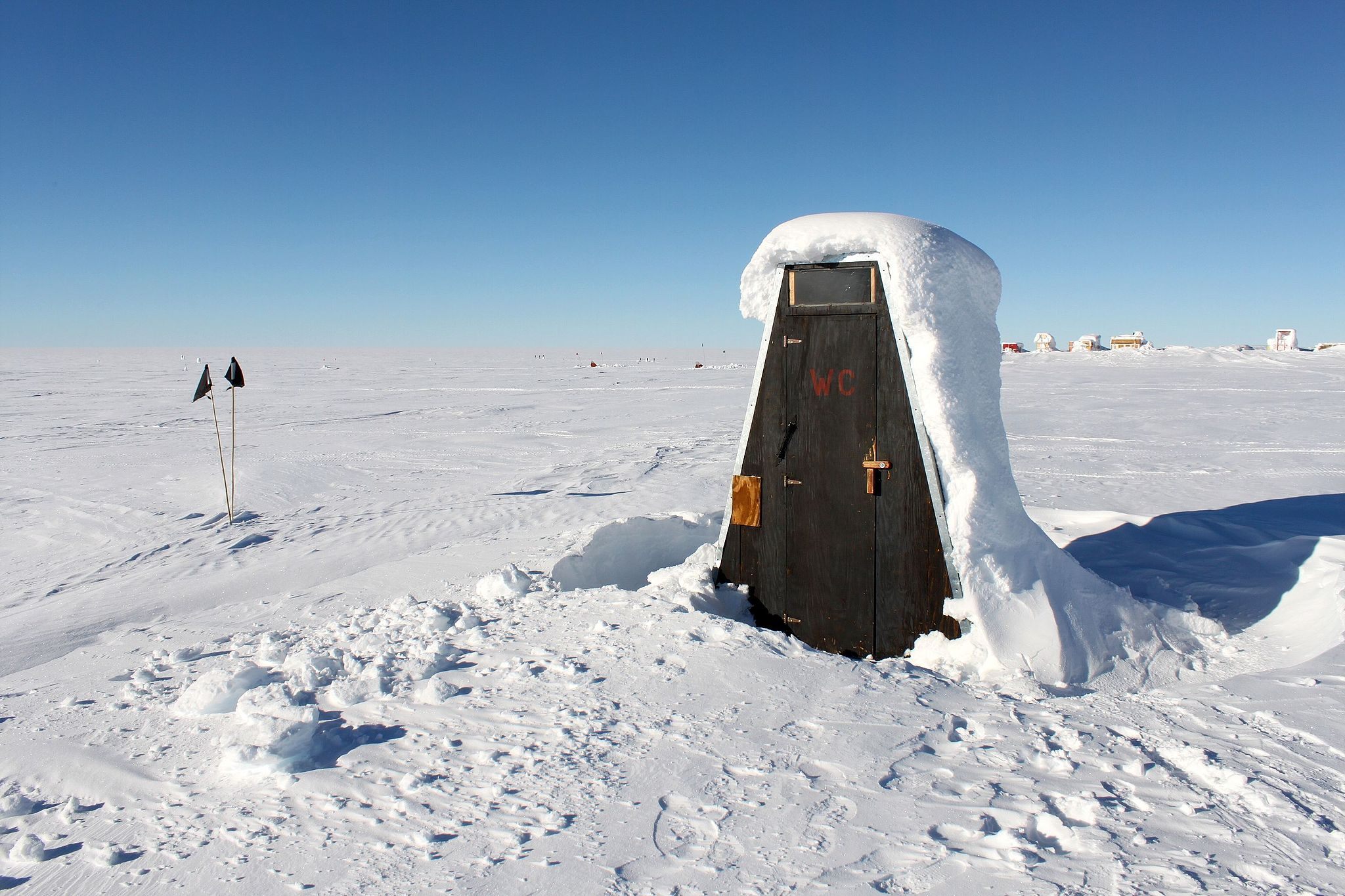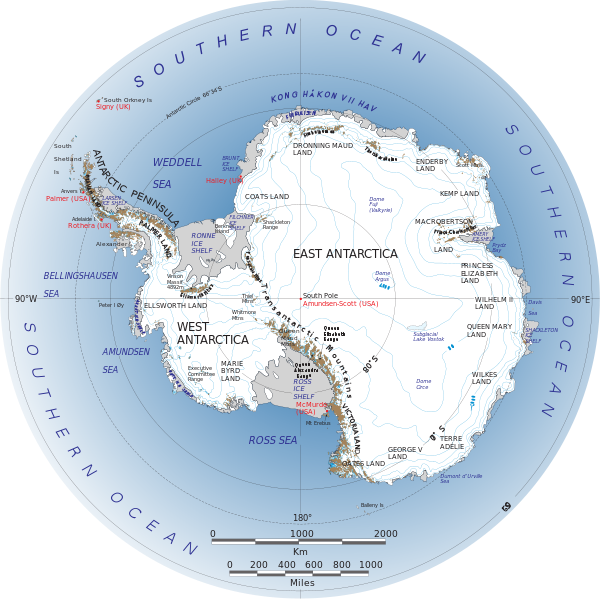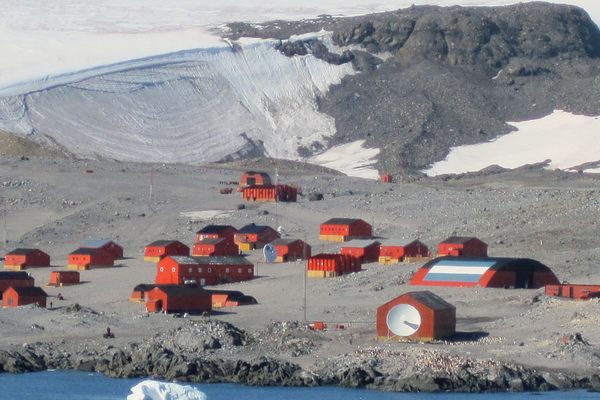How a Baby Staked Argentina’s Claim on Antarctica

Antarctica doesn’t offer the cushiest conditions. (Photo: Eli Duke/WikiCommons CC BY-SA 2.0)
What do you do with an entire continent whose sovereignty is unresolved and whose territories are in dispute? Simple: dispatch a pregnant lady, have her give birth there, and then use the baby to stake your territorial claims.
Or at least, that’s the tactic that Argentina tried in 1977, when the nation’s politicians decided to airlift Silvia Morello de Palma, then seven months pregnant, to Argentina’s Esperanza Base near the tip of the Antarctic Peninsula.
On January 7, 1978, newborn Emilio Palma became the first person in history known to have been born on the frigid, unforgiving continent.

Argentina’s Esperanzo Base, where Emilio Palmas was born. (Photo: Andrew Shiva/Wikimedia Commons CC-BY-SA 4.0)
The plan was spurred into action after Chilean President Augusto Pinochet made a visit to Antarctica earlier that year to assert his country’s dominance in the region, a visit that may have inspired Argentina’s unconventional pregnancy grab–perhaps the most extreme of many measures taken over the course of decades of squabbling.
The ensuing joke, apparently, was that Chileans were sending recently married couples to their own Antarctic base in order to claim the first baby both conceived and born in the territory. (Though no claims have been made, since then, couples have lived at these bases for up to a year at a time and more than a dozen births have been registered, so one suspects that it has probably happened by now.)
Baby Emilio belonged to a larger regional trend. In 1979, Argentina created a stamp with two children looking at a map of the nation, which included their alleged portion of Antarctica, with the slogan, “Argentines, we must march to the frontiers.”
Indeed, Argentina is so serious about these unrecognized claims that it is illegal to show a map of the country that does not include the Malvinas, the South Atlantic Islands, and the section of Antarctica that the nation claims is theirs.

A full view of the pie in play. (Photo: Public Domain/WikiCommons)
Humans did not arrive in Antarctica until the 1820s, when American seal hunter John Davis allegedly made the first Antarctic landing, in 1821 (a British sailor, James Waddell, followed in 1823). Since the continent was without a native population, it was only a matter of time, perhaps, until a politician figured that registering an indigenous birth would be an act of sovereignty.
“All of the countries involved in the issue of Antarctic sovereignty are kind of making up the rules as they go along,” says Dr. Adrian Howkins, associate professor at Colorado State University, who wrote his doctoral dissertation on the history of territorial disputes in the Antarctic region. “In terms of international law, at that time and in the 1940s and ’50s, it was much more of an emotional argument than a legal argument.”
Imperialism and nationalism have characterized the claims. Howkins, who is from the UK, discovered the issue was a mostly unwritten slice of history, and decided to look at it through the lens of decolonization.
The unsupported claims have a lot to do with national pride, he says. For Chile or Argentina to give up Antarctic territory, at this point, would be like giving up national land. “It would be extraordinary if an Argentine or Chilean government said we no longer want this—it’s so ingrained in the consciousness of those countries.”

Not sure what all the fuss is about. (Photo: Stephen Hudson/WikiCommons CC BY-SA 2.5)
Article IV of the 1959 Antarctic Treaty stipulates that any territorial claims made before the treaty’s ratification are neither denied nor acknowledged, and that while the treaty is in place, no new claims can be made. There are now 53 signatories, seven of which have staked previous claims—Argentina, Australia, Chile, France, New Zealand, Norway, and the UK.
Howkins says that France, Norway, Australia, New Zealand, and the UK are “sort of a club within a club of mutual recognition of territorial claims.” Argentina and Chile, meanwhile, recognize each other’s rights to claims, but not the claims themselves, since many of their territories overlap. And as for everyone else? “I think pretty much every other country in the world doesn’t recognize any of these claims,” says Howkins.
It’s a unique legal situation, or lack thereof. Argentina and Chile, and to a lesser extent, the UK, have been by far the most assertive of the bunch, maneuvering in the slight wiggle room left open by the treaty. They assert that Antarctica already belongs to them; they just need to articulate claims, define limits, and establish borders. Legitimacy of such claims is even tied to competition over who can do the most important scientific research in the region. Technically, however, Antarctica belongs to the global commons.

Esperanzo Base now even has a cemetery. (Photo: Andrew Shiva/Wikimedia Commons CC-BY-SA 4.0)
The decades of territorial tiffs have a juvenile air about them. Instances of placing and stealing and replacing flags have been common. For example, in November 1942, an Argentine expedition left a flag in a cylinder to mark its takeover of Antarctica’s Deception Island. Two months later, a British ship’s staff destroyed the evidence, planted their own flag, and notified Argentina of the act. Within another two months, an Argentine vessel had already removed it.
Argentina, Chile, and the UK, as well as France and New Zealand, have even designed special flags for their respective Antarctic territories, all within the last few decades. There’s also been lots of naming and renaming and conflicting names; the Antarctic Peninsula, for example, is known by Argentina as Tierra de San Martin, by Chile as O’Higgins Land, and by the British as Graham Land, while another part of the peninsula “belonging” to the United States is named Palmer Land.
Reminder: none of these countries actually own the land in question.

Not the most hospitable of landscapes. (Photo: Vincent van Zeijst/WikiCommons CC BY-SA 3.0)
Still, the treaty hasn’t kept Argentina from listing various rationales for its catalogue of continuing claims. These include Argentina’s Orcados base, which, established in 1904, was the continent’s first permanently inhabited base and the only one for 40 years; Argentina’s construction of the first Antarctic airport in 1969; and the fact that Argentina has sent more people to the region than any other country.
One of Argentina and Chile’s major grounds for claims is that the Antarctic Peninsula, geologically, is a continuation of the Andes mountain range, which runs along their borders. Argentina and Chile even argue that their nations’ legal rights go back all the way to when the Spanish Empire made a claim on Antarctica in 1493.
As for the possible escalation of tiffs and tension and the potential for these claims to ever truly come in handy, opinions vary. Howkins thinks it’s going to be a while before anything of value is found or exploited in Antarctica; he sees the hope of discovering valuable resources as more symbolic, though others disagree.
And as for Baby Emilio? He’s now 38 and seems to be doing just fine.









Follow us on Twitter to get the latest on the world's hidden wonders.
Like us on Facebook to get the latest on the world's hidden wonders.
Follow us on Twitter Like us on Facebook